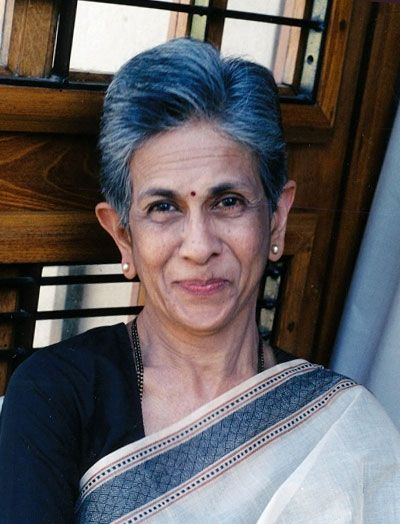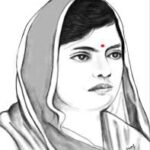Shashi Deshpande: The Voice of Modern Indian Women Writers
Shashi Deshpande is one of the most influential and respected voices in contemporary Indian literature. Renowned for her thought-provoking novels, short stories, and essays, she is celebrated for exploring the complexities of human relationships, especially in the context of women’s lives. Deshpande’s works delve into themes of identity, self-discovery, and societal expectations, offering a unique and profound perspective on modern Indian life.
Early Life and History of Shashi Deshpande
Shashi Deshpande was born on August 19, 1938, in Dharwad, Karnataka, India, into a family deeply immersed in literature and the arts. Her father, the well-known Kannada author and journalist R. S. Deshpande, instilled in her a love for literature from an early age. She grew up in an environment that encouraged intellectual pursuits, and she went on to pursue a degree in English Literature at the University of Bangalore.
Deshpande’s writing career began in the 1970s, and she gained national recognition with the publication of her first novel, “The Dark Holds No Terrors” in 1980. The novel dealt with the complexities of marriage, identity, and personal growth, themes that would continue to resonate throughout her work. Over the years, she wrote numerous novels, short stories, and essays, many of which earned critical acclaim for their bold exploration of women’s inner lives, struggles with societal expectations, and emotional complexities.
Her works are marked by a deep understanding of human nature, especially the challenges faced by women in a rapidly changing society. Deshpande’s writing is often described as reflective and empathetic, shedding light on the emotional worlds of ordinary people and their struggles with personal relationships and societal norms.
Daily Life Impacts of Shashi Deshpande’s Work
Shashi Deshpande’s work has had a profound impact on the daily lives of many readers, particularly women. Her stories, which often center on women’s personal journeys, challenge traditional roles and offer new ways of thinking about identity, marriage, and independence. Through her characters, Deshpande encourages women to question societal expectations and embrace their autonomy.
Her portrayal of women as complex individuals with their own desires, insecurities, and aspirations has inspired many women to reflect on their own lives and relationships. For example, in her novel “That Long Silence,” the protagonist, an ordinary woman caught in the web of family obligations, undergoes a journey of self-discovery, making it a powerful narrative about the strength and resilience of women in the face of adversity.
Deshpande’s writing also resonates with men and other readers who are interested in understanding the dynamics of gender roles and relationships in contemporary society. Her exploration of universal themes like love, loss, and personal transformation speaks to people from all walks of life, making her work deeply impactful on a personal level.
Significance and Observance of Shashi Deshpande’s Legacy
Shashi Deshpande’s work has had a significant impact not only on literature but also on the wider social discourse about women’s rights, empowerment, and identity in India. Her stories often reflect the struggles of women trying to carve out space for themselves in a society that can be limiting and oppressive. In this sense, her works serve as both a mirror and a critique of contemporary Indian society.
Her legacy is celebrated by literary communities, feminist groups, and readers alike. Deshpande is often invited to literary festivals, seminars, and discussions where her works are analyzed and celebrated for their nuanced portrayal of human emotions and relationships. In addition to her written works, she has been an important voice in public discussions on issues related to gender, literature, and social change.
Key Facts About Shashi Deshpande
- Prolific Writer: Shashi Deshpande has authored several novels, short story collections, and essays, with some of her best-known works including “The Dark Holds No Terrors,” “That Long Silence,” and “The Binding Vine.”
- Awards and Recognition: Deshpande has received numerous literary awards, including the Sahitya Akademi Award for her novel “That Long Silence.” Her contributions to literature were also recognized with the Padma Shri award in 2009.
- Themes of Female Empowerment: One of the central themes of Deshpande’s work is the empowerment of women. Her characters often navigate the complexities of family, career, and personal identity, and she advocates for self-expression and autonomy.
- Influence on Indian Literature: Deshpande is regarded as one of the leading voices in modern Indian literature, particularly in the realm of writing about women’s experiences and struggles.
- Global Reach: Though she writes primarily in English, Shashi Deshpande’s works have been translated into several languages and have resonated with readers not only in India but across the world.
FAQs About Shashi Deshpande
Q: What is the main theme of Shashi Deshpande’s work?
A: The main themes in Deshpande’s work include self-discovery, identity, gender roles, and the complexities of human relationships, especially those involving women.
Q: How does Shashi Deshpande portray women in her novels?
A: Deshpande portrays women as multifaceted individuals who experience a range of emotions, from joy to sorrow. Her works explore the challenges women face in balancing personal desires with societal expectations.
Q: What is Shashi Deshpande’s most famous book?
A: Some of her most famous works include “That Long Silence,” “The Binding Vine,” and “The Dark Holds No Terrors.” These novels deal with the emotional journeys of women and the struggles they face within the framework of traditional society.
Q: What is Shashi Deshpande’s writing style like?
A: Deshpande’s writing is often described as reflective, introspective, and empathetic. She uses simple, elegant language to convey complex emotions, and her narratives are rich with psychological insight.
Why Shashi Deshpande is Important to Society
Shashi Deshpande’s importance to society lies in her ability to address social issues through her literary works, particularly those concerning women’s rights, identity, and agency. She has provided a platform for women’s voices in literature, creating a space for women to explore their inner lives, relationships, and societal struggles. Through her work, she has helped dismantle some of the stereotypes that limit women’s roles in society, offering a more nuanced and empathetic understanding of women’s experiences.
Her legacy also serves as a reminder that literature can be a powerful tool for social change. By exploring issues such as marriage, motherhood, and personal freedom, Deshpande’s work encourages readers to think critically about their own lives and the societal structures they inhabit.
In conclusion, Shashi Deshpande’s contributions to literature are immense, and her works continue to inspire and challenge readers today. She has given a voice to women’s experiences, helping to shift the narrative around gender and identity in contemporary Indian society. Through her writing, Deshpande reminds us of the power of storytelling to evoke empathy, foster understanding, and create meaningful change.










